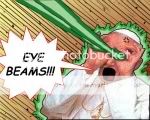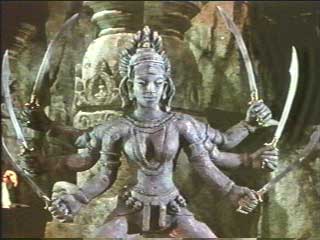Religious Prophet or Raving Lunatic? Messiahs for Dummies

Rambam's Guidelines Separate True Prophets from Schizophrenics
from Jerusalem Post
Although the behavior of biblical prophets could easily have caused them to be mistaken for being mentally ill, Judaism through the millennia has recognized the existence of psychosis and set down clear rules for determining who may be a prophet. Talmudic sages went even farther to protect Judaism from the danger of false prophets and declared that prophesy was not possible from the destruction of the Temple onwards.
 Such a discussion of prophesy and mental illness has been presented just in time for the New Year by Drs. Tali Vishne and Eran Harary of the Be'er Ya'acov Mental Health Center in Ness Ziona and Sheba Medical Center at Tel Hashomer.
Such a discussion of prophesy and mental illness has been presented just in time for the New Year by Drs. Tali Vishne and Eran Harary of the Be'er Ya'acov Mental Health Center in Ness Ziona and Sheba Medical Center at Tel Hashomer. In the latest issue of Harefuah, the Hebrew-language journal of the Israel Medical Association, the psychiatrists noted the cliche that some psychiatric patients think they are God or the Messiah. Although this is a superficial statement, they wrote, some psychotic patients show delusions claiming to have prophetic, messianic or divine powers. The Be'er Ya'acov psychiatrists, in a lengthy analysis of commentaries such as Rashi, Radak and Maimonides (Rambam), wrote that several prophets were described in the text as behaving or appearing to be meshuga (crazy or insane).
 Maimonides, who was a leading physician of his time, set down strict criteria for who could be a genuine prophet. He must be able to predict the future and his predictions must be persuasive and believable after in-depth verification. In addition, a true prophet must have "intellectual supremacy and coherent behavior" – high cognitive and functional levels – in order to earn spiritual authority in the Jewish world.
Maimonides, who was a leading physician of his time, set down strict criteria for who could be a genuine prophet. He must be able to predict the future and his predictions must be persuasive and believable after in-depth verification. In addition, a true prophet must have "intellectual supremacy and coherent behavior" – high cognitive and functional levels – in order to earn spiritual authority in the Jewish world. The authors suggested that schizophrenia patients have cognitive and functional difficulties, and that studies of draftees who became schizophrenic showed a declining IQ even before their disease presented itself. Thus, they write, a schizophrenic could not be a true prophet according to Maimonides's 800-year-old criteria, and these principles protected the Jewish people from falling for the claims of false prophets "when strong and uniform leadership was lacking to judge borderline cases."




























0 Comments:
Post a Comment
<< Home